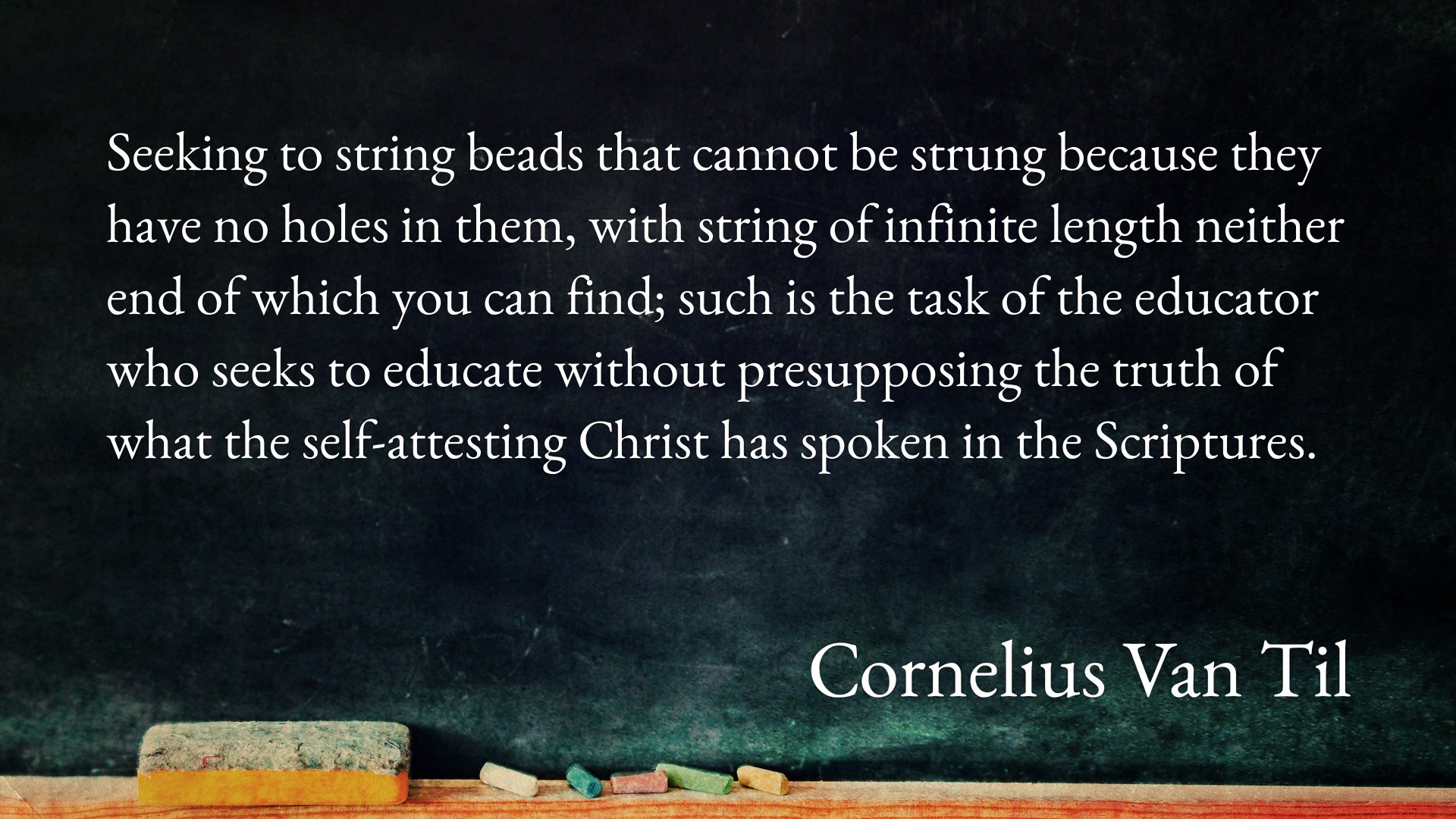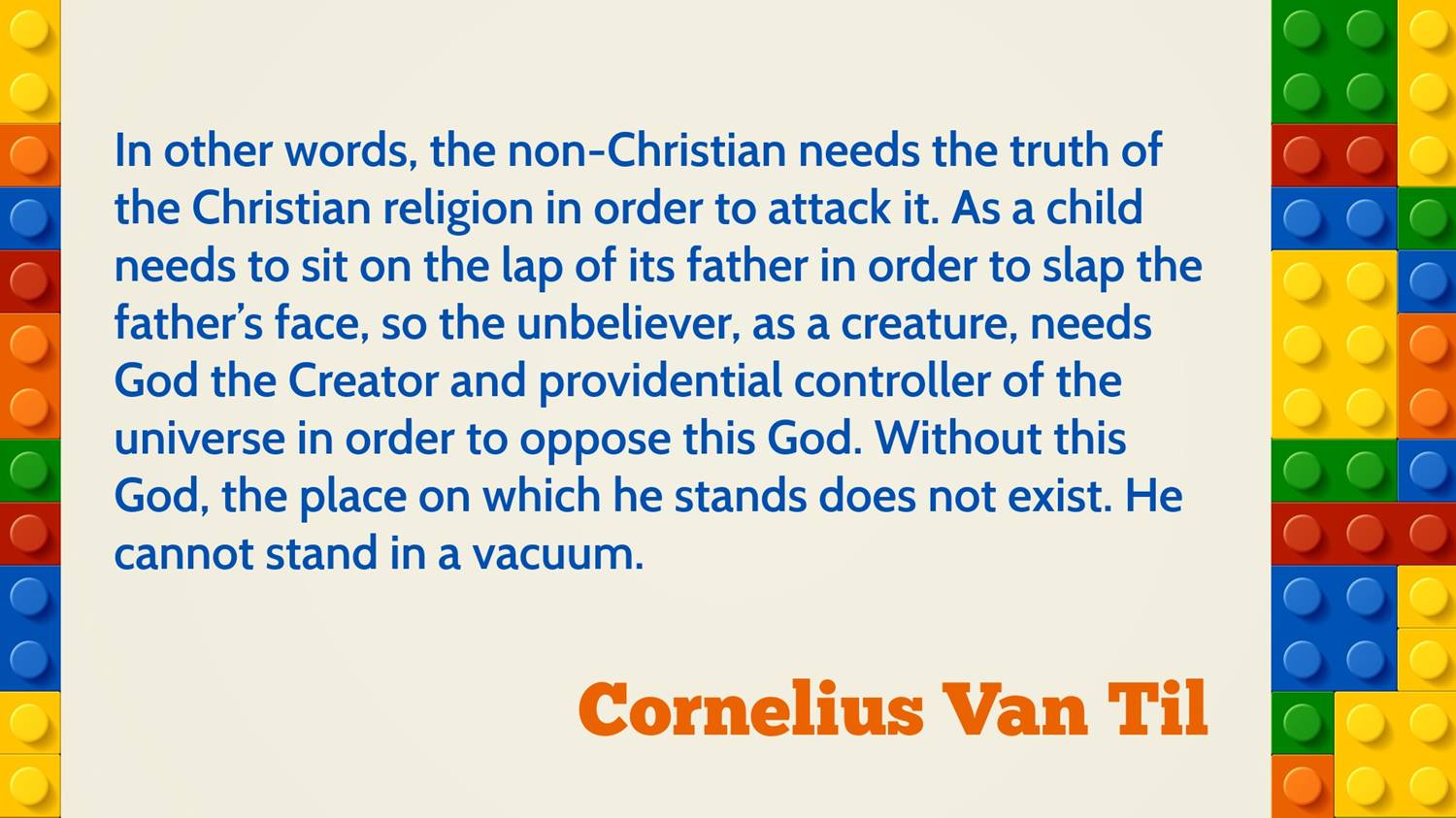
“Our work as educators would be hopeless and futile if we engaged in it on the principle of synthesis discussed above. But what joy it is to know that Christ has come to save man and his culture! The first Adam by his sin refused to undertake the cultural mandate given him. When he was told to subdue the earth he would not do so as unto God his creator. But the second Adam undertook anew what the first Adam, and all men with him, failed to do. Now then, we who are saved by grace, we who have by the Spirit of God been born from above, need not beat the air. There is for us a true synthesis of all things in Christ. And we may offer this Christ to all men that they too with us might escape the futility and the absurdity, the immorality and the blasphemy, of seeking to synthesize what by their very sinful act they are all the while destroying. The task of educators who do not educate in and unto Christ is like the task of Sisyphus as he rolled his stone to the top of the hill only to see it roll down again. If the facts of the world are not created and redeemed by God in Christ, then they are like beads that have no holes in them and therefore cannot be strung into a string of beads. If the laws of the world are not what they are as relating the facts that are created and redeemed by Christ, these laws are like a string of infinite length, neither end of which can be found. Seeking to string beads that cannot be strung because they have no holes in them, with string of infinite length neither end of which you can find; such is the task of the educator who seeks to educate without presupposing the truth of what the self-attesting Christ has spoken in the Scriptures.”
Cornelius Van Til, Essays on Christian Education (The Presbyterian and Reformed Publishing Company: Phillipsburg, NJ, 1979).



